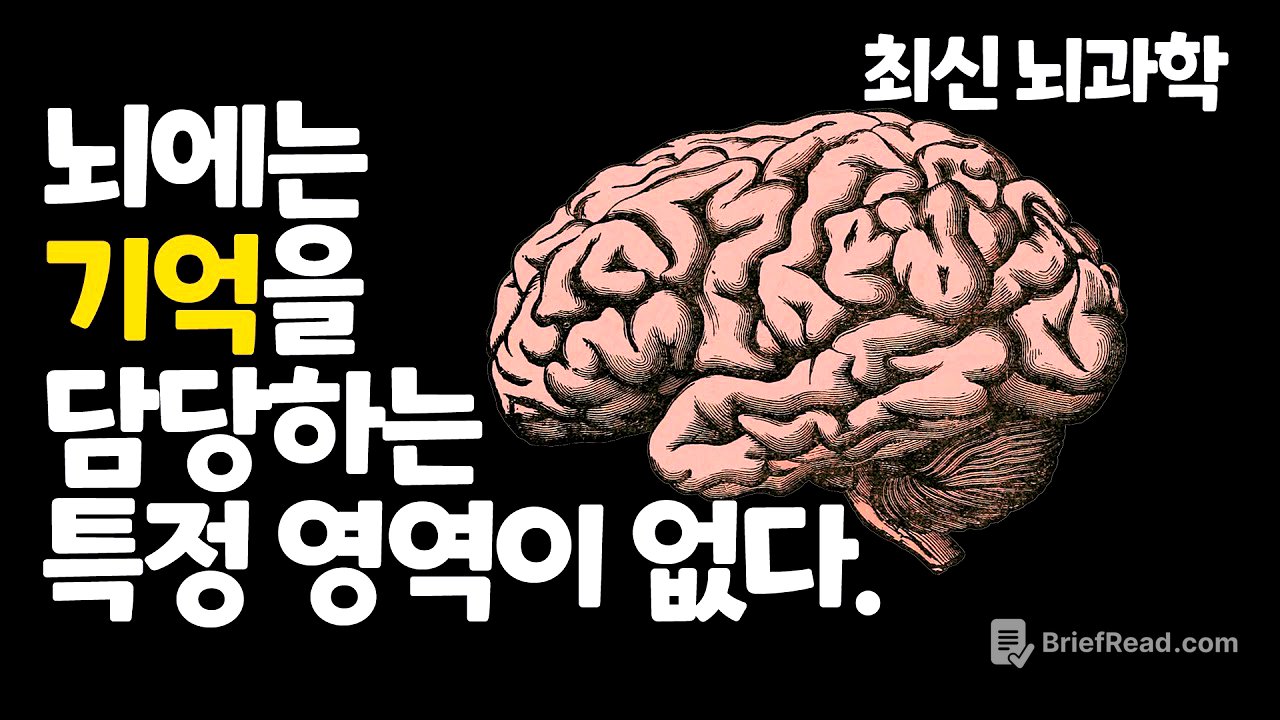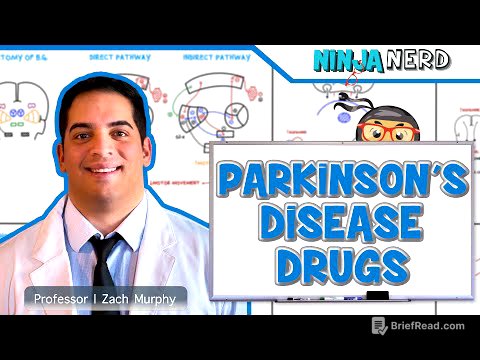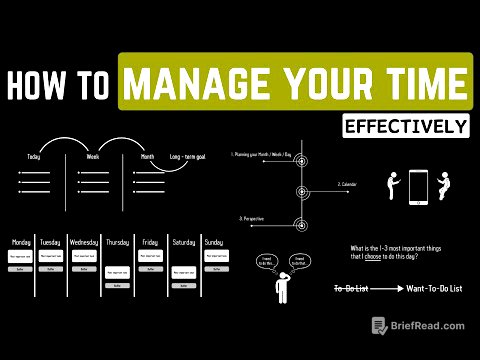TLDR;
The video explains how memory functions in the brain, emphasizing that it's not stored in a single location but rather distributed across a neural network. It covers different types of memory, including working memory, short-term memory, long-term memory, muscle memory, and semantic memory, and discusses the importance of attention, emotion, and context in memory formation and recall. The video also touches on factors that can impair memory, such as stress and alcohol consumption, and offers tips for improving memory, such as paying attention, creating meaning, managing stress, and maintaining a positive attitude.
- Memory is distributed across a neural network, not stored in one place.
- Different types of memory exist: working, short-term, long-term, muscle, and semantic.
- Attention, emotion, and context are crucial for memory formation and recall.
- Stress and alcohol can impair memory.
- Tips for improving memory include focus, meaning, stress management, and positivity.
How Memory Works [0:00]
The common misconception is that memories are stored in a specific brain area and retrieved, but this is incorrect. Memory is not localized; the brain uses memory to enhance survival by remembering threats and energy sources. The brain uses all senses to record experiences, creating a comprehensive memory. When recalling a memory, the brain activates a pattern similar to the one created during the initial experience, indicating that memories are stored across a neural network.
Working Memory [2:37]
Working memory is the brain's present-state consciousness, holding information for only about 15 to 30 seconds. It acts as the initial gateway for memory, but new information quickly replaces old information. For short-term memories to become long-term memories, they must pass through the hippocampus. The hippocampus is essential for converting short-term memories into long-term memories. Damage to the hippocampus can prevent the formation of new long-term memories, as demonstrated by the case of Henry Molaison.
Muscle Memory [4:28]
Muscle memory, stored in the basal ganglia, allows for physical movements to become automatic through repeated practice. This type of memory is independent of the hippocampus, enabling individuals with hippocampal damage to still learn and improve motor skills. Muscle memory operates without conscious effort, allowing the brain to focus on higher-level tasks while performing well-practiced movements.
Types of Memories [5:45]
The brain filters vast amounts of sensory information, storing only what is important to manage energy efficiently. Information that captures attention, has personal meaning, or evokes emotions is more likely to be stored as long-term memory. Humans also utilize semantic memory, which stores learned knowledge and facts. Semantic memory requires repeated study and memorization, with spaced repetition being more effective than cramming due to the spacing effect, which allows for better consolidation in the hippocampus.
How to Improve Memory [7:25]
Conscious effort and attention are crucial for storing memories effectively. Paying special attention to details, creating personal meaning, and associating emotions with experiences can enhance memory storage. Flash memories, which are vivid and long-lasting, are often associated with strong emotions and unexpected events, activating the amygdala and sending strong signals to the hippocampus. To recall forgotten memories, it helps to recreate the sensory and emotional context of the original experience, engaging all senses to stimulate the brain.
Factors Affecting Memory [9:27]
Alcohol impairs memory by damaging the hippocampus and preventing the conversion of short-term memories into long-term memories. To improve memory, it is important to pay attention, create meaning, manage stress, eat well, exercise, and maintain a positive attitude. Self-esteem also plays a role, as individuals with high self-esteem tend to have more efficient memory function.









